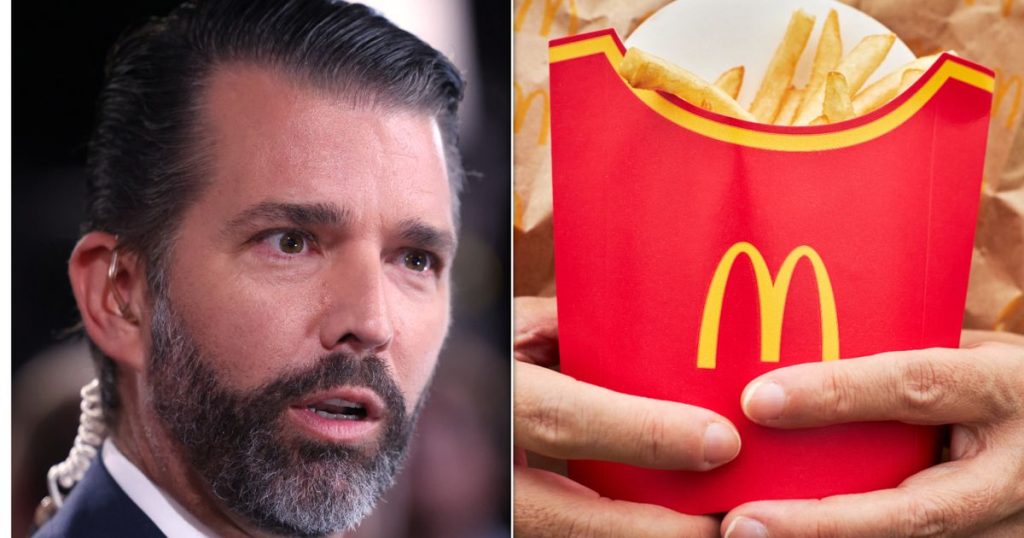Former President Donald Trump has continued to bring up Vice President Kamala Harris’ early job working at a fast-food restaurant, drawing criticism and accusations of racism from those who see the remarks as demeaning and irrelevant. Harris worked at a Howard Johnson’s restaurant in Herndon, Virginia, as a teenager in the 1980s, a detail that Trump has fixated on during recent appearances and social media posts. Critics argue that Trump’s focus on Harris’ early job serves to belittle her accomplishments and qualifications for her current role as Vice President, emphasizing a narrative of her as undeserving or inferior.
Trump’s repeated mentions of Harris’ fast-food job have sparked controversy and backlash, with many condemning his remarks as disrespectful and out of touch. Some have pointed out that Harris worked at the restaurant as a teenager to help support her family and that her success since then, including earning a law degree and becoming the first female, Black, and Asian American Vice President, speaks to her intelligence, work ethic, and leadership abilities. By focusing on a menial job from Harris’ past, critics argue that Trump is attempting to undermine her credibility and prowess as a political figure, reinforcing harmful stereotypes and biases.
The debate over Trump’s comments about Harris’ fast-food job highlights the persistent challenges faced by women, particularly women of color, in positions of power. Harris has been subjected to a barrage of criticisms and attacks since being elected as Vice President, many of which are rooted in misogyny and racism. By fixating on her early employment history, Trump and his supporters perpetuate harmful stereotypes and attempt to diminish Harris’ accomplishments and qualifications based on outdated and irrelevant criteria. The controversy serves as a reminder of the importance of challenging ingrained biases and supporting women in leadership roles.
Critics of Trump’s remarks about Harris’ fast-food job have accused him of sexism and racism, pointing to a pattern of derogatory and belittling comments towards women and people of color. Trump’s history of making disparaging remarks about women, minorities, and marginalized communities has been well-documented, and his recent focus on Harris’ teenage job fits into a larger pattern of discriminatory behavior. By choosing to attack Harris based on her early employment, Trump continues to perpetuate harmful stereotypes and reinforce systemic inequalities that hold back women and minorities in positions of power.
The controversy surrounding Trump’s comments about Harris’ fast-food job underscores the need for greater awareness and accountability when it comes to addressing sexism and racism in society. Harris’ success as a groundbreaking Vice President should not be overshadowed by outdated and discriminatory narratives that seek to diminish her achievements and discredit her abilities. By drawing attention to Trump’s remarks and the harmful impact they have on perceptions of women in leadership roles, critics hope to spark a broader conversation about the importance of challenging bias and supporting diversity in positions of power.
In conclusion, the ongoing debate over Trump’s fixation on Kamala Harris’ teenage job at a fast-food restaurant reflects broader issues of sexism, racism, and discrimination that continue to permeate discussions of women in positions of power. By drawing attention to Harris’ early employment history, Trump and his supporters attempt to undermine her credentials and accomplishments, perpetuating harmful stereotypes and reinforcing systemic inequalities. It is essential for society to confront and challenge these biases, supporting women like Harris in leadership roles and creating a more inclusive and equitable environment for all individuals to thrive and succeed.


